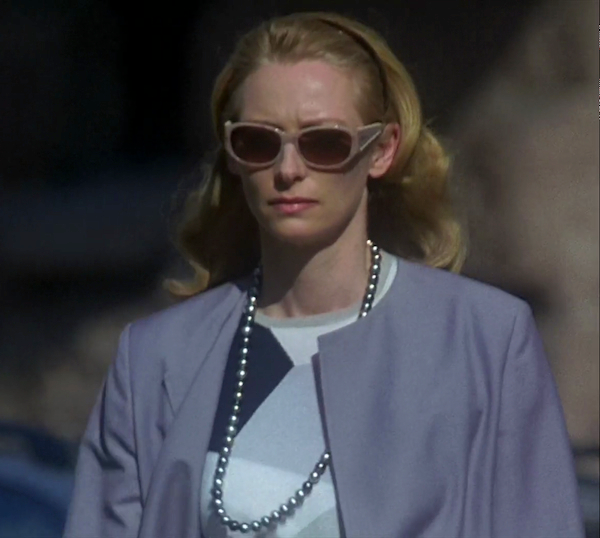
In 2014, Karen Wisínska was shocked when she slipped on a pair of trousers bought at Primark. Inside, she discovered a prison identity card — and a message written in Chinese, beginning with: SOS SOS SOS. She found an interpreter, who revealed that the writer described inmates being forced to work “like oxen” for 15 hours a day, surviving on food “unfit for animals.”
She wasn’t alone. Around the same time, two Welsh shoppers found hand-stitched labels inside Primark dresses reading: “Forced to work exhausting hours” and “Degrading sweatshop conditions.” An Australian customer came across a similar plea in a Saks Fifth Avenue bag — another Chinese prisoner describing brutal conditions and forced labour.
Three years later, workers from Bravo Tekstil sewed messages into Zara tags after their factory shut down overnight: “I made this item you’re going to buy, but I didn’t get paid for it.”
The inhumane conditions that campaigners have highlighted for decades never disappear. Scandals surface on television, fade, then reappear elsewhere a year later. The Rana Plaza collapse killed over 1,000 workers — most of them locked in by supervisors. Even more shocking was that the factories had been warned. Workers discovered cracks in the walls the day before and evacuated, but time pressure from Western brands forced them back inside. The building collapsed.
An Industry in Urgent Need of Transformation
These messages sewn into clothing labels expose an industry that has turned a blind eye to workers’ rights for centuries. What is “news” to us is daily life to those trapped within it. We soothe our consciences by hoping brands are improving, but the omens aren’t good.
In March 2025, a report by Diplomat revealed that over 7,000 factories in Bangladesh had either underpaid or failed to pay their workers in the previous month.
I haven’t visited Bangladeshi factories, but I did attend Zara’s supply chain summit in Zaragoza. The contrast couldn’t be starker: while workers sew desperate pleas into garments, the founding family’s net worth sits at $120 billion.
Alongside this exploitation comes environmental destruction. Fast fashion produces 1.2 billion tonnes of CO₂ each year — more than aviation and shipping combined. In the UK alone, 300,000 tonnes of clothing end up in landfill annually, with each garment worn just seven times.
This isn’t waste — it’s poisoning our planet.
Beyond Cheap Fashion: Luxury’s Dirty Secret
For decades, luxury brands deflected blame for the industry’s darker side. No longer. A higher price tag offers no moral absolution. The Fashion Transparency Index now calls out Chanel and Max Mara alongside chains like Matalan and River Island. Even where cashmere jumpers sell for thousands, the human cost remains tragically high.
Just two months ago, the façade cracked. In July 2025, Italian luxury house Loro Piana — owned by LVMH — was placed under court administration for facilitating worker exploitation. The Milan court found the company had “negligently facilitated” the abuse by failing to verify working conditions.
The Carabinieri’s labour crime unit discovered ten Chinese workers — five undocumented — working 90-hour weeks for €4 per hour. The location? Just a few miles outside Milan.
If this were isolated, we might tut-tut and move on. But a wave of similar cases has emerged. In 2024, Giorgio Armanishut down a luxury subsidiary over alleged Chinese worker exploitation. Valentino and Dior have faced court proceedings for comparable offences.
Among the most egregious findings: employees slept at the factory so they could be “available 24 hours a day.” Safety devices on machines had been removed to speed up production. Costs were pared down to as little as €53 (£45) for a handbag that retails for €2,600 (£2,250).
The pattern is clear: luxury’s moral superiority is a myth.
Swimming Against the Tide of Sewage
Wherever you find malpractice, there’s usually a handful of people swimming against the tide of sewage. Against this backdrop of industry-wide deception, a small group of British brands is proving that fashion can be both beautiful and ethical. Their approaches offer a glimpse of what the industry could be — if it chose transformation over destruction.
Poetry operates on a fundamentally different timeline from the fast-fashion giants. Luke Dashper began shaping the company’s current structure over 20 years ago but relaunched with Poetry in 2020, telling The Telegraph: “Our direction comes from a consideration of three sources: what is going on in fashion and the wider world of art and culture, what our customers want… and our own aesthetic in terms of fabric, colour and style.”
Just as their path to profitability has been deliberate, so are their clothes. Their look is relaxed yet refined — the kind the modernised Sloane Ranger brigade gravitates toward. (No surprise their studio is in Putney.) Cashmere and linen are mainstays, though this season they’ve gone big on velvet. Their velvet jackets and shirts deserve particular attention, alongside the long, draped shirt dresses you can float around in.
Their colour palette evokes the Farrow & Ball paint range — giving you a clear idea of their target customer. Prices start around £200, with an emphasis on timeless design and natural fibres (over 99% of materials used). Poetry’s pieces are made to last for many seasons, not just one. It remains a family-run operation, with Luke’s wife overseeing logistics and distribution. The company has expanded into the US, though American sizing has caused occasional confusion for their demographic.
Baukjen has perfected what Vogue calls “the chic and sexy attitude” that defines the brand. Like Poetry, it’s pared-back, but where it excels is in leadership. Baukjen has achieved the golden benchmark: the company holds B Corp certification — the highest-scoring SME fashion B Corp in the world — and, astonishingly, it received the UN Global Climate Action Award at COP26 (2021), the first time this honour was given to a fashion brand.
Founder Baukjen de Swaan Arons, now 53, is no newcomer. She first made her mark with maternity brand Isabella Oliver, and now channels her energy into dressing women enjoying a more liberated phase of life.
Baukjen’s mood is trend-conscious but never trend-driven. Crucially, the brand manufactures in Portugal rather than South East Asia or China, dramatically reducing its carbon footprint. Fabrics are sourced locally to factories, and all suppliers must sign a Code of Conduct guaranteeing living wages, safe conditions, and regulated working hours.
Her “18-hour dress sense” philosophy — clothing that carries women through their entire day — comes alive this season with well-cut jackets and dresses like the Mariposa Midi, a figure-hugging, fit-and-flare design with a zip neckline and shirt-style collar that pairs beautifully with boots.
Critical acclaim has poured in. The Times’ Fashion Director, Anna Murphy, writes: “Difficult to please?! Me?! Not when it comes to Baukjen, thankfully. I love the femininity and simplicity of their eco-friendly collections.” Harper’s Bazaarcalls them “truly beautiful”, while Marie Claire praises their “everyday designs with a cool fashion edge.”
OMNES takes perhaps the most democratic approach to sustainable fashion in Britain. You might wonder what a PPE graduate is doing in fashion, but CEO Jordan Razavi is on a mission to challenge the notion that shopping sustainably must be expensive. The brand name translates as “for all” in Latin — a fitting reflection of his philosophy.
OMNES constantly innovates, using fabrics derived from waste products and cutting patterns carefully to minimise offcuts. They produce dresses made from polyester yarn spun entirely from recycled plastic bottles, and are currently developing materials derived from biological waste. Their bold, colourful prints are created using OEKO-TEX Standard 100 and GOTS-approved digital printers — a process that saves water and energy while producing vivid results.
Their collection of maxi and party dresses stands out in particular. Many pieces flatter taller or slimmer builds — the styling doesn’t forgive bulges — but the designs are undeniably striking and sophisticated.
AKYN, some would argue, should top the list. Its founder began almost 20 years ago as an intern at Mother of Pearl and became synonymous with the rise of sustainable fashion, thanks to the 2017 documentary Fashion Reimagined, which chronicled her search for ethical suppliers and materials.
Her departure from Mother of Pearl, around her 40th birthday, marked the start of a new chapter: launching her own label. The Telegraph’s fashion editor Lisa Armstrong hailed AKYN as “the label I, and probably you, have been waiting a long time for — elevated design with a beautiful ethos of ethics and sustainability.”
A known disruptor, she’s championed sustainability from TED Talks to international panels. AKYN stands for kinfolk. “This isn’t about reinventing my mission,” she says. “It’s about continuing it with greater ambition.”
Her latest collection is versatile and elegant, marked by a lightness of touch and architectural cuts that signal confidence. “I don’t design for one type,” she says. “In a single day, I’m a mother, a wife, a businesswoman, a cleaner, a cook. I’ve never tried to define my customer. I just want people to feel amazing in the clothes — whether that’s in a trouser suit, a flowing dress, or jeans and a T-shirt.”
The Channah Trench, with its asymmetrical silhouette, will draw gasps of envy.
The Long Road Ahead
Amy Powney’s story underscores a sobering truth: after two decades in fashion and a decade as a leading voice for sustainability, the work is only just beginning. Despite her transformation of Mother of Pearl and the success of Fashion Reimagined, the industry’s fundamental problems remain largely unchanged.
While brands like Poetry, Baukjen, OMNES, and AKYN prove that ethical fashion is possible, they remain exceptions in an industry still driven by the relentless pursuit of cheaper, faster production. We can therefore expect to keep finding messages tucked away in pockets — because the system that created them hasn’t been dismantled.
A Chinese proverb reminds us that “the nail that sticks out gets hammered down”, but sometimes it takes a protruding nail to reveal the rot beneath the surface. Those messages mean consumers can no longer plead ignorance. There is a human and planetary cost to fast fashion.
True transformation demands more than a handful of ethical pioneers. It requires robust legislation to protect natural resources and workers’ rights. It calls for consumers to value the hands that make their clothes as much as the clothes themselves. Above all, it asks that we stop treating fashion as disposable. The materials are precious and finite. The labour deserves recognition.
The question now is whether the industry — and we, as consumers — have the courage to answer that call for change.

